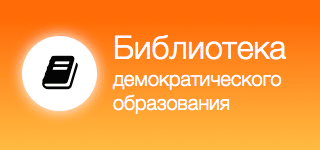Community schools build citizen engagement in Russia
- Author / organization: Maggie I. Jaruzel, Mott Communications Officer
- September 1, 2006 Added by Фомина Елена Views: 2416
- Topics: Networking
- Document type: Article, Review, Research
Elena Fomina, executive director of KCCP, discusses the nonprofit organization’s newest venture in community schools - the launch of a Web site containing information about the Russian and global community education movement - with Mott Communications Officer Maggie I. Jaruzel.
Mott: Why are you so personally passionate about community schools?
Elena Fomina (EF): I am passionate because I have witnessed what community schools can achieve. While traveling throughout Russia and abroad, I have seen success stories of community schools and I am proud of our joint results.
The main thing that excites me about Russian community schools is their openness and readiness to solve social and community problems. A community school is not only an education center -- it is also a cultural center and a social center.
Some people say it is not actually the task of the school to solve these problems, but I think this is a good thing. For example, in a small village there is a school and it is the only center of life there. That is why people come with their problems and their needs, and the community school is always ready to listen and help. This open character is probably the thing that touches me most.
Mott: What motivated KCCP to launch a Web site containing information about the Russian and global community education movement?
EF: A survey conducted by KCCP showed there was interest in community schools and community school resource centers. There was also interest in creating a common community school Internet site, which intends to stimulate cooperation between community schools and nonprofit organizations that work in community schools and community education development.
All these organizations have a lot to share but often they don’t have their own Web sites or don’t know where to look for this information. We hope to unite our efforts, coordinate joint initiatives, and exchange experiences through the Internet.
| “All that is left for us to do now is to have faith in ourselves and truly believe in our ability to make these dreams come true.” |
So far, organizations from Russia, Azerbaijan, Czech Republic, Germany, Kazakhstan, USA, Spain, and Ukraine have visited the site. A woman working in the Czech Republic said she was pleased to see the site and hopes that others will use it. Someone from Azerbaijan said the site had a lot of interesting information, and plans to send us news about community schools in Azerbaijan to post.
Mott: Describe the current growth in community education and why many people refer to it as a "movement."
EF: The number of community schools is growing and they are being recognized by education department officials in several countries. In May 2006, there was a meeting of community school resource center leaders in Moscow that demonstrated the potential for the movement’s growth. Participants worked together to define a common vision and principles. All that is left for us to do now is to have faith in ourselves and truly believe in our ability to make these dreams come true.
Mott: Can other community education practitioners submit items for posting on the Web site, and how often is it updated?
EF: Any organization from any country can submit items to be posted. All sections are in Russian and some in English. The site is updated every day.
We believe all the sections of the Web site will be very useful and popular. We spent a great deal of time discussing what to include with community schools educators and practitioners. We are most proud of the online library, where interesting materials can be easily found. Any organization or school can offer materials that contributes to the community schools movement for the online library.
Presently, the Web site is mostly oriented to Russian speakers, but there are three sections in English, including news, joint actions, and the library. Also, we have invited community school practitioners from other countries to provide materials.
Mott: What do you hope to accomplish by providing a site that hosts discussion forums for community education practitioners and researchers?
EF: The Web site forum is an opportunity for online discussions of issues related to the development of community education and community schools, as well as those around the development of civil society and grassroots activities. This is a space where anyone can express his or her opinions and share thoughts. Right now, discussions are in Russian. In the future, we hope to host discussions in English.
Imprint
The Ch. S. Mott Foundation Newsroom, August 31, 2006. http://mott.org/news/detail.asp?newsid=457





